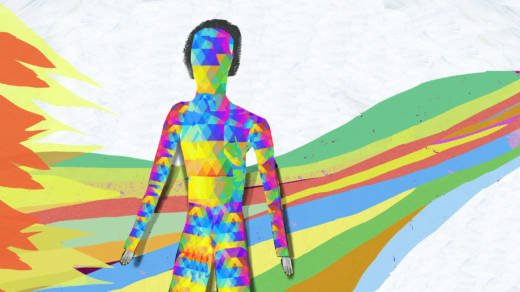
All of us are wired for connection. Yet historically, the medical community has operated from a neurotypical perspective, often pathologizing neurodivergent folks such as those on the autism spectrum, particularly as it shows up in social settings. It is common for adults with autism to feel misunderstood and rely on masking to mirror neurotypical social scripts, the pressures of which can affect mental health and wellbeing. While there is still very limited research on the topic, few studies have shown potential for the use of MDMA to alleviate social anxiety and depression among autistic adults. In fact, MDMA may support a neurological “relearning” of social reward in the brain, creating a sense of safety and enjoyment in the social nervous system. As a person who identifies as neurotypical, it is important for me to name that I don’t see MDMA as a “treatment” for autism; rather, I want to uplift the growing community of autistic voices who describe healing for themselves through this medicine.
Supporting Mental Health
Autistic adults experience high rates of anxiety and depression, which may arise, in part, from cultural structures that are not designed to meet neurodivergent needs. For example, the challenges of navigating social interactions and sensory sensitivities might create tension, worry, burnout, and feelings of helplessness. MDMA-assisted therapy shows promise in reducing levels of anxiety and depression by facilitating emotional processing, regulating the nervous system, inspiring new perspectives about life experiences, and rewriting self narratives.
Feeling Connected
The social reward pathway involves the release of neurotransmitters like dopamine and oxytocin in response to interpersonal interactions, playing an important role in shaping behavior, feelings of connectedness, and motivation toward sociality. Emerging research suggests that MDMA acts on this area of the brain, with exciting implications for repatterning circuits toward relaxation and joy in social situations. By promoting feelings of empathy, trust, and emotional openness, MDMA may increase a sense of ease within the body, lending itself to supporting an individual in finding their desired levels of comfort in social situations and connection with others.
Deepening Self-Awareness and Acceptance
Research thus far suggests that psychedelics enhance psychological flexibility and cognitive reappraisal (see more on psychedelics and self concept here). MDMA-assisted therapy invites an exploration of a person’s inner world, fostering self-compassion toward their strengths and challenges. Adults with autism have reported a deeper understanding of their thought processes after receiving MDMA-assisted therapy, expressing desires to explore their identities, relationships with themselves, and relationships with others.
Clinical Considerations and Future Directions
While the potential of MDMA-assisted therapy in autism is exciting, research is still limited and ongoing. In clinical practice, it will be important to develop inclusive protocols that meet the needs and sensitivities of autistic individuals, ensure adequate support and ethical engagement across neurodiversity spectra, provide effective integration following psychedelic experiences, and navigate the changing legal considerations for psychedelic-assisted therapy. Psychedelic-assisted therapy may not be for everyone, yet it holds potential to uplift neurodiverse communities, encouraging understanding, acceptance, and healing on an individual and social scale.
For more information, see
https://www.autisticpsychedelic.com/







